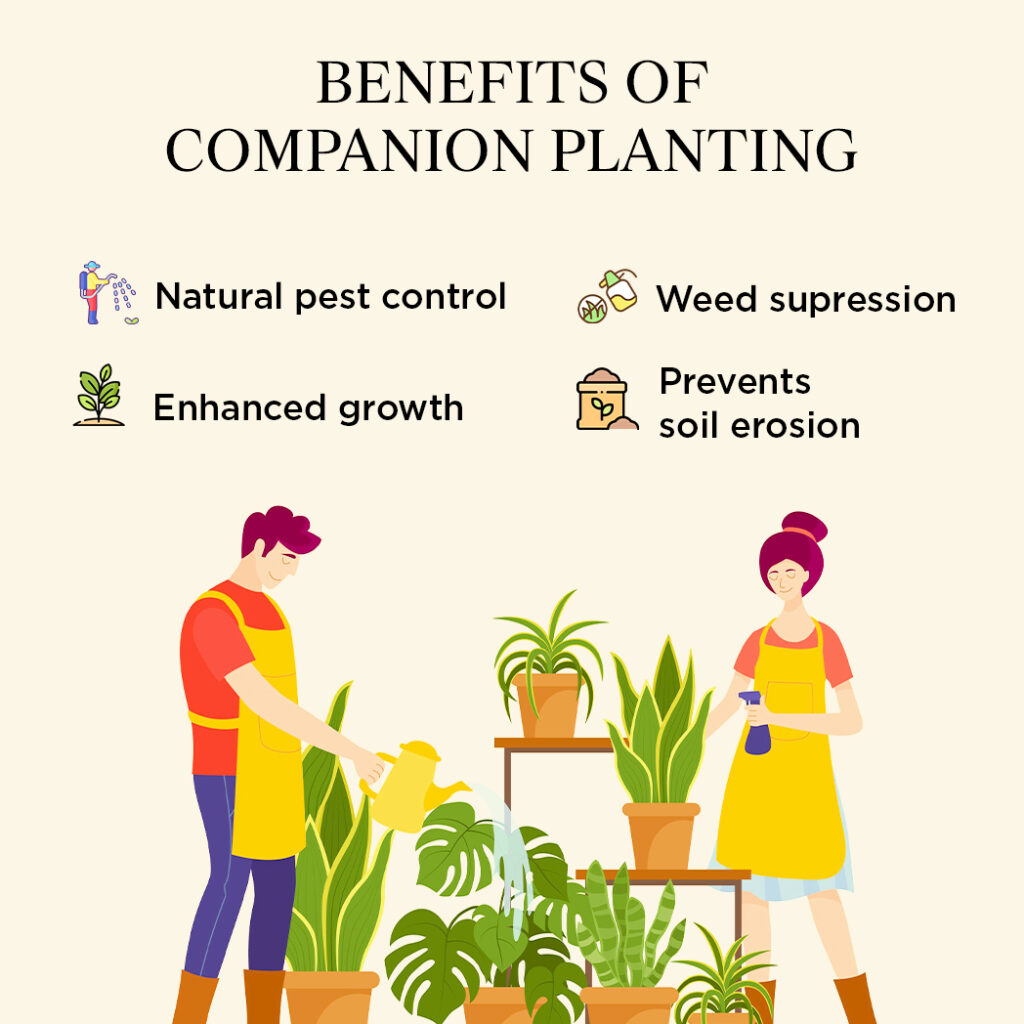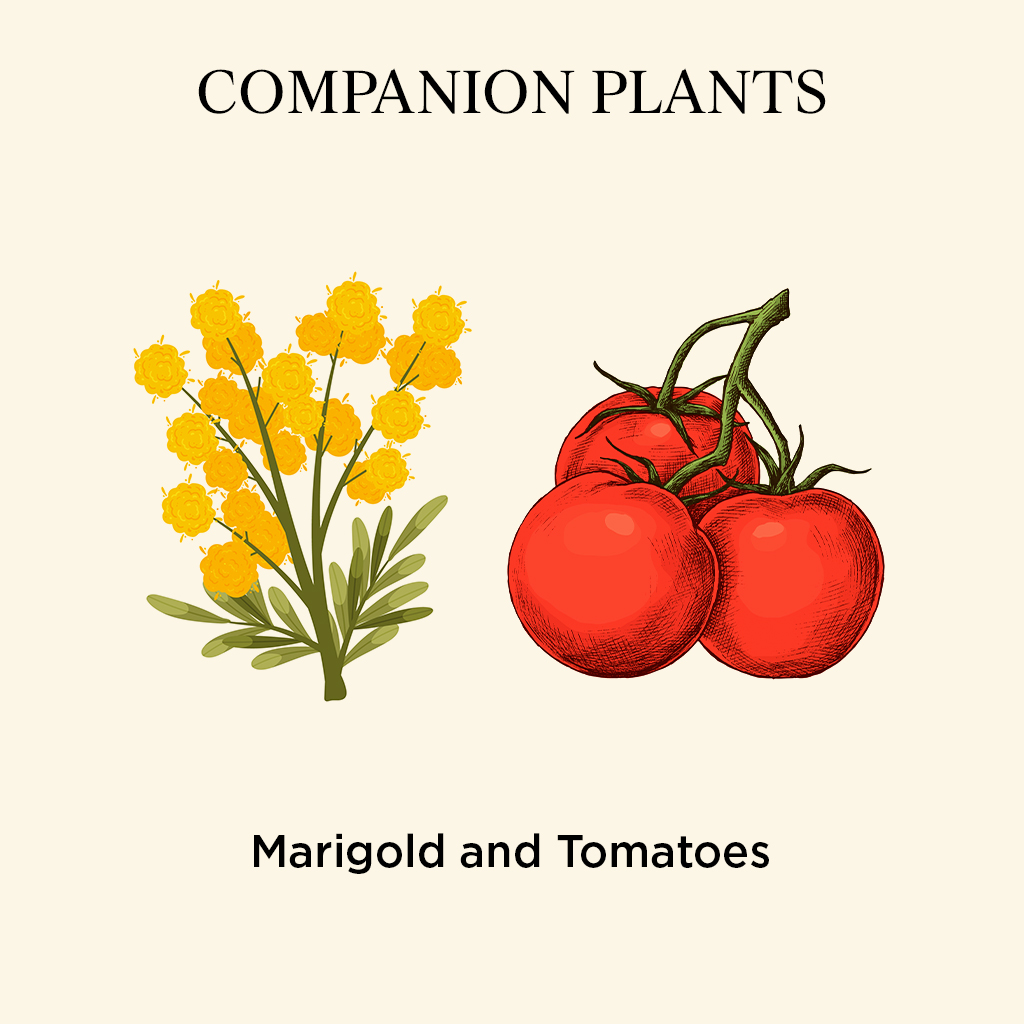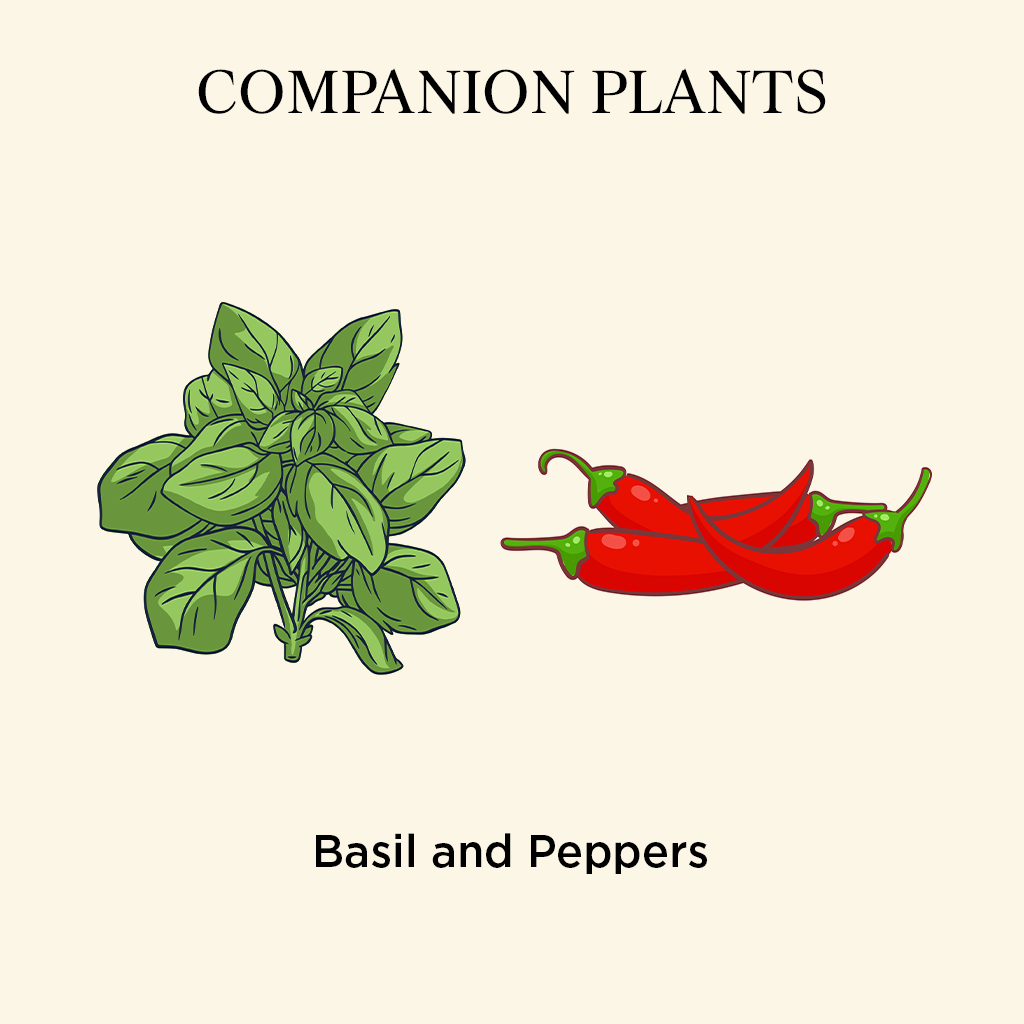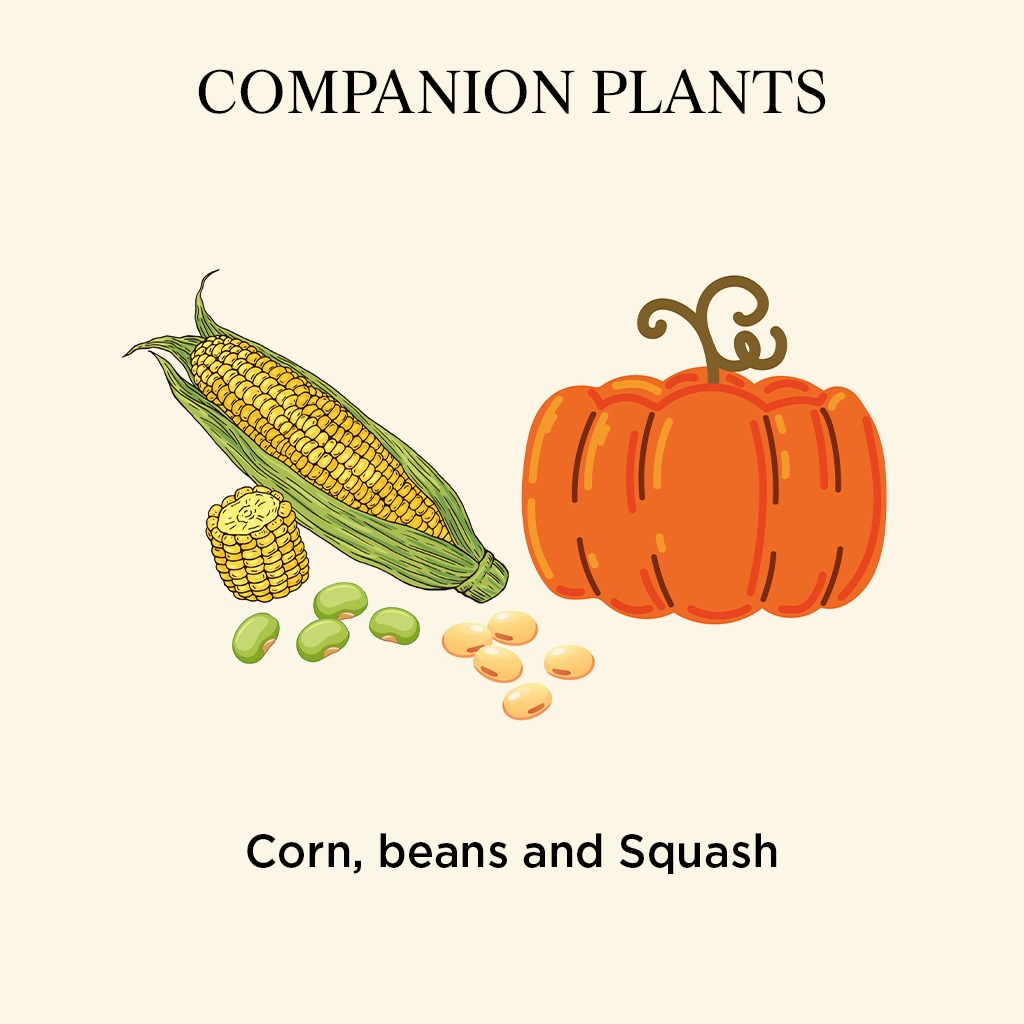
-Sallust
Picture your garden as a vibrant community where plants are like friends that support each other through thick and thin. This is how companion planting works. It is a form of polyculture which involves the practice of growing different varieties of plants side by side. Through such pairings, the plants benefit in unique ways such as suppressing weeds, providing soil minerals and nutrients to enhance growth, helping keep away pests and preventing soil erosion.

Benefits of Companion Planting
- Natural Pest Control: Companion planting attracts beneficial insects (refer Good&Bad Bugs here), such as ladybugs, predatory beetles, and parasitic wasps, which feed on common garden pests. This creates a natural balance in the garden, reducing the need for synthetic pest control measures.
- Enhanced Growth: Some plants have complementary nutrient needs, and when planted together, they can enhance each other’s growth by optimising nutrient uptake. For instance, nitrogen-fixing plants like legumes can improve soil fertility for neighbouring plants.
- Weed Suppression: Companion plants that spread and cover the soil surface act as a living mulch,(refer to Mulch here) a key ingredient to a healthy garden, inhibiting weed growth. The dense foliage shades the soil, preventing sunlight from reaching weed seeds and hindering their germination.
- Prevents Soil Erosion: If the gardening soil is loose, it can easily be affected by wind or water. The root systems of companion plants help bind the soil together, reducing its susceptibility to erosion by wind or water. Plants with fibrous and dense root structures, such as cover crops like clover, can anchor the soil effectively.
Companion planting is like hosting a garden party where plants mingle, support each other and thrive together. Just like a good friendship, it brings out the best in everyone, creating a vibrant and healthy garden community. Here are a few of the common examples that you can even try out in your gardens:
Marigolds and Tomatoes – The Dynamic Duo

Basil and Peppers – Best Buddies
As basils grow alongside peppers, basils act as a bodyguard, keeping pests from bothering the peppers.

Corn, Beans and Squash – The Three Musketeers
Here, corn acts as a support for beans to climb on, while beans add nitrogen to the soil, benefiting the corn and squash.





